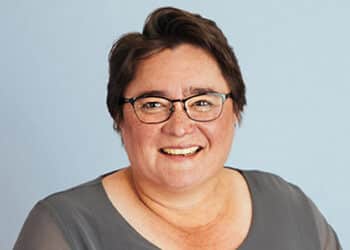After the issuing of the draft ruling in July 2011, the industry has waited (and waited) to resolve a range of important issues around when a pension may cease, including:
-the death of a member
-where a member fails to comply with the pension rules, and
-full and partial commutations
Whilst many of the messages haven’t departed greatly within the final ruling, we have certainly seen a change in the superannuation landscape about various tax issues surrounding the cessation of pensions, including in more recent times the continuation of a fund’s tax exemption post death, along with methodology for determining the tax-free and taxable components of a deceased member’s superannuation interest where there is no reversionary beneficiary.
The Commissioner has taken an ordinary meaning approach from the Macquarie dictionary to define what is an income stream. Combining the definitions of ‘income’ + ‘stream’, the ruling outlines its meaning to be a series of periodic (including series of annual) payments made from a member’s superannuation interest. As a result of this position, a single payment for one year would not satisfy the Commissioner as having a pension in existence. This is because there is no liability to pay a member a series of payments and thus does not satisfy as an income stream. Any annual payment of a pension need to be continual and possible to identify of a period of time to qualify as a pension.
So, what has the Commissioner provided clarity on within the final ruling?
Failure to comply with the pension rules
As stated within the draft ruling, failure to comply with pension rules will mean that income stream did not exist at any stage during the financial year. This view has been made more definitive by the Commissioner stating further than even where the member may remain ‘entitled’ to receive a payment under the governing rules or general trust law concepts, a pension will not exist for tax purposes. If requirements of the income stream are then met in the following year, a new pension has commenced at that time and the proportions of the income stream must be recalculated.
A pension will cease in circumstances by operation of the payment standards of SIS Regulations, in particular where a financially dependant child turns 25 (unless disabled). In this case, the pension ceases at the earlier of the time specified by the governing rules of when the child reaches age 25. This is consistent with recent views expressed within SMSF determination, SMSFD 2013/1.
Commutations
An ordinary meaning approach has again been taken to ‘commutation’, with guidance provided in Hammerton’s case and Cooper’s case. These cases and looking at the ordinary meaning of commute considers an ‘exchange in entitlement to one thing for another. The ATO takes the view that a commutation will arise where the trustee of the fund is required to pay the member or dependant beneficiary a lump sum which is substituted from periodic income stream benefits.
The pension will cease at the time of request when a member wishes to fully commute their pension. This is an important distinction from the time the payment is made, as the effect of the request substitutes the liability to pay periodic pension payments in a super lump sum. This means that the superannuation interest will be in accumulation phase at the time of the payment.
A payment will only be taxed as a lump sum as a result of a partial commutation where a member elects for the benefit to be a super lump sum under reg. 995-1.03 of the ITAR 1997. This differs to the Commissioner’s original views in TR 2011/D3, where the ruling stated that upon electing to partially commute the pension was also taken to have made the election under the regulation. Where the member does not elect, the payment resulting from the partial commutation is an income stream benefit for tax purposes.
Following on from this ruling, the ATO also issued, SMSFD 2013/2, which provides further clarity confirming that where the appropriate election has been made to treat a partial commutation amount as a lump sum, it will count towards the member’s minimum pension obligation for the income year. As this amount is a lump sum, it can be paid in cash or in-specie.
Death
The Commissioner’s view has remained consistent, in that, when a member dies, they no longer have an entitlement to receive an income stream benefits. Where there is any discretion in how to pay, the pension will cease at death.
There must be an automatic transfer of an income stream to a tax dependant beneficiary for a pension to not cease. The rules must specify:
-the person to whom the benefit will become payable; and
-that it will be paid in the form of an income stream
-In addition, it may specify a class of person to receive the benefit (e.g. spouse)
Where it is evidenced that the deceased member was entitled to a series of periodic payments over an identifiable period of time, a superannuation income stream may still exist in that income year regardless of the amount of pension taken (including none).
There appear to be some outstanding issues from a superannuation perspective that the ATO will hopefully provide further guidance on, in particular the SIS issues of when a member may fail to comply with the pension rules of a transition to retirement income stream. I’m suspecting we will continue to see further determinations appear from the Commissioner in the near future.
Aaron Dunn is the managing director of the SMSF Academy.


